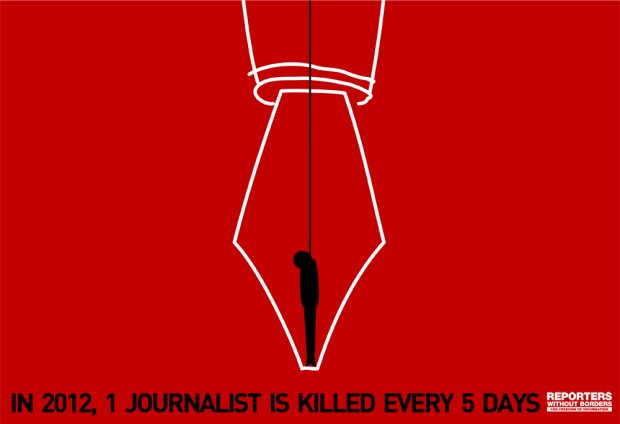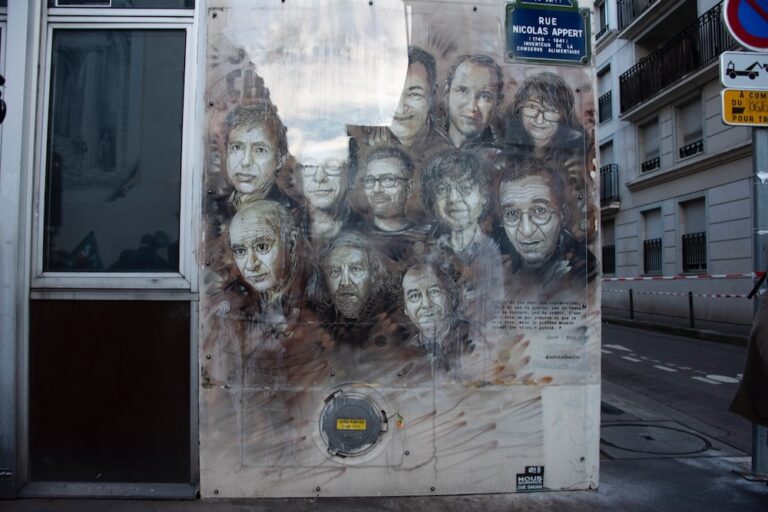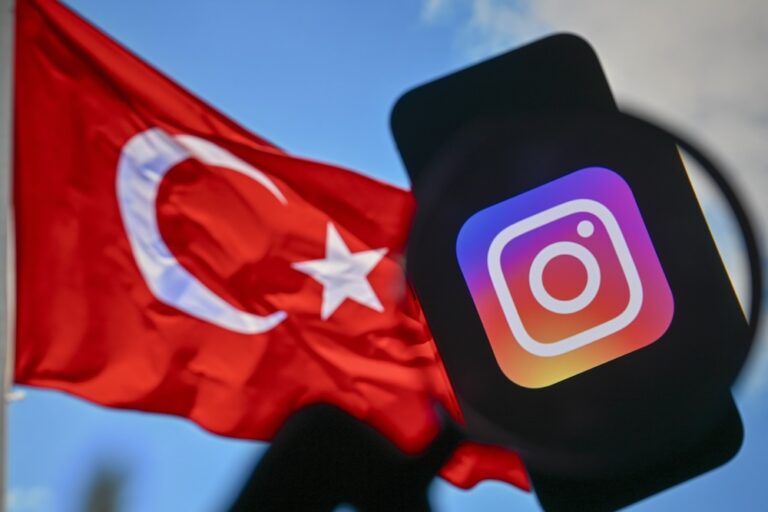To mark World Press Freedom Day, RSF has also named new six members to its infamous list of press freedom predators.
(RSF/IFEX) – 3 May 2012 – Today, World Press Freedom Day 2012, Reporters Without Borders condemns the furious pace of physical attacks on news providers and reports that a total of 21 journalists, and 6 netizens and citizen journalists have been killed since the start of 2012, many of them in war zones such as Somalia and Syria. This is a rate of one news provider killed ever five days.
Reporters Without Borders is today also releasing an updated list of its “predators of the freedom to inform,” a list that has grown in size and now has 41 members.
“Let there be no witness to our crimes” and “let there be no voice but ours” – these are the watchwords of authoritarian regimes and armed groups that are hostile to freedom of information. What with crackdowns on protest in Arab countries, and suppression of political opposition, criticism and reporting in other parts of the world, the first four months of 2012 were especially violent for those who try to provide news and information.
New predators of the freedom to inform
The first quarter of 2012 has clearly shown that the world’s predators of the freedom to inform, led by Syria’s Bashar Al-Assad and Somalia’s Islamist militias, are capable of behaving like outright butchers.
The 2011 revolts toppled several despots who were on the predators list such as Libya’s Muammar Gaddafi and Yemen’s Ali Abdallah Saleh but they unfortunately did not reduce the overall number of these enemies of information.
Six new predators have joined this evil “club” in 2012: Boko Haram, an Islamist group that spreads terror in Nigeria; Egypt’s Supreme Council of the Armed Forces, which has regrettably taken over from deposed dictator Hosni Mubarak as regards violating freedom of information; the Somali federal government’s information minister, who is responsible for harassment and intimidation of the media; Vasif Talibov, the all-powerful leader of Azerbaijan’s “Autonomous Republic” of Nakhchivan; Pakistan’s intelligence agencies; and Kim Jong-un, who perpetuated North Korea’s predatory dictatorship on the death of his father, King Jong-il.
There is a growing trend for countries to have more than one predator. Six countries now have two. Somalia has as the Islamist militia Al-Shabaab as well as the information minister. Pakistan has the Taliban as well as the intelligence agencies. Azerbaijan has President Ilham Aliev as well as Nakhchivan’s strongman, Talibov, who has turned his fiefdom into a laboratory for the repressive methods that Aliev applies in the rest of the country.
Russia not only has Vladimir Putin but also his Chechen “guard-dog,” Ramzan Kadyrov, who shares his master’s taste for forceful words and gestures. The Palestinian Territories have both the Palestinian Authority in the West Bank and Hamas in Gaza, both of which use their security forces to harass journalists. And finally, the Islamic Republic of Iran has both Supreme Leader Khamenei and President Ahmadinejad, who – despite their rivalry – agree on gagging the media. Iran still ranks with Eritrea, China, Turkey and Syria as one of the world’s biggest prisons for journalists.
Other presidents, such as Djibouti’s Ismail Omar Guelleh, Sudan’s Omar al-Bashir and Uganda’s Yoweri Museveni, could be added to the predators list soon. Yemen, which had a particularly trying 2011, continues to be under close scrutiny since President Saleh’s departure. Burmese President Thein Sein, on the other hand, could be removed from the list if he proves to be the president of reform and democratization in 2012.
The Revolutionary Armed Forces of Colombia (FARC) were on the list for many years, like Colombia’s paramilitary groups, which are still on it. The FARC guerrillas were dropped from the list some time ago because they cut back targeted actions against journalists. But now the FARC are being blamed for French freelance journalist Roméo Langlois’ disappearance since 28 April, when FARC guerrillas attacked a military anti-drug operation that Langlois was covering.
Reporters Without Borders is following the case closely, and with the appropriate caution. The organization intends to use World Press Freedom Day to pay tribute to his professional courage and to voice its support for his family and colleagues.



